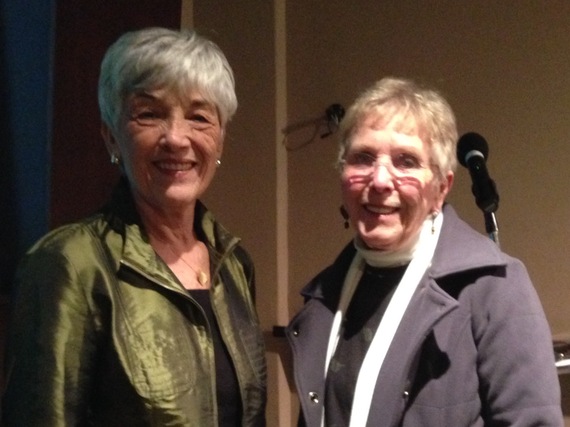Do Not Resuscitate? Allow Natural Death? Do everything to keep me alive? Whatever happens, I don't want tubes down my throat! Keep me out of Intensive Care Units!
End-of-life decision-making gets tougher every day.
Dying - that straightforward, universal human experience - now often involves a bewildering assortment of choices and decisions. And most of us are poorly prepared. We have core values (and usually more than a few fears and family histories) that come into play in making end-of -life choices, but too many of us are caught unawares.
At a recent Commonwealth Club of California event Mileva Saulo Lewis, EdD, RN, used a "values history" approach to explain how these difficult decisions are made, and to help audience members walk through the process. "Values history" translates: What matters to you? Why? It was developed at the Center for Medical Ethics and Mediation in San Diego.
"Values," Lewis explains, "are the criteria by which you make decisions." They might be rooted in your home and family, your faith community, college or university, workplace or elsewhere, but one's values underlie all decision-making. And the reason all this matters today, especially with end-of-life decisions, is that medicine and technology have made seismic shifts over the past half century.
Lewis spoke of how the patient/physician relationship, one of these shifts, has moved from the paternalistic, "father knows best" model to what is now often termed "patient-centered" care - shared decision-making. This new model requires patients not only to be well informed, but also to be proactive and to make their values known.
The goals of medicine, Lewis explains, include curing disease, relieving symptoms and suffering, and preventing untimely death. The patient's part is to make sure the healthcare provider explains and counsels adequately, and respects the patient's expressed wishes. Ideally, decisions will be made in concert.
Lewis outlined some of the factors to consider in end-of-life decision-making such as how important to you is independence, being able to communicate with others, being pain-free and other end-of-life circumstances that have been frequently discussed in this space. She suggested one tool that has not been mentioned here, and is an excellent aid: the Ottawa Personal Decision Guide. However you make (and record) your personal choices, she stresses the importance of thinking through your values, writing down your wishes and - most important of all - talking it all over with friends, family members and your healthcare provider.
"Know yourself," Mileva Lewis says. "Communicate. Trust yourself, and your healthcare provider. And be proactive."
Heeding Lewis' advice can help protect your values, and insure that your end-of-life wishes are respected.

